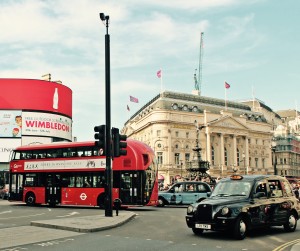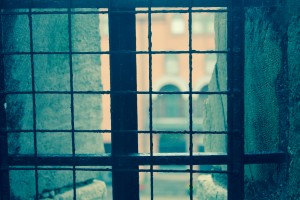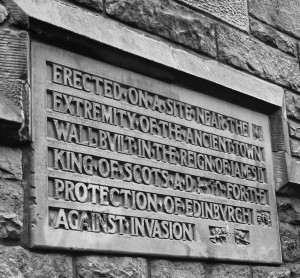by Cord J. Whitaker
Since last Thursday’s Brexit vote, expressions of racism and incidents of hate crime have risen dramatically in England. This is in direct contrast to my experience in 1999 when I first walked the streets of London. I felt free. I felt freer than I

had ever felt in the US. Everything that early and mid-20th-century African-American expatriate artists said about leaving the States rang true. I wasn’t followed in stores. I could catch a cab easily. I didn’t get the common uneasy feeling that I was somewhere I wasn’t supposed to be. I decided then and there that I was a global citizen.
I was in step with the times. There was a lot of talk about globalization at the turn of the century when I was a college student—right down to the baccalaureate speech in which my college’s president, a well known economist, spoke at length on how globalization would shape my generation’s personal and professional experiences. Yes, I thought as I meandered through London’s lanes, it looks like globalization is going to work out well for me indeed.
The passing of seventeen years can bring clarity. In hindsight, my self-proclaimed global citizenship was a mask. Not a mask hiding my identity. I was very comfortable with that—perhaps more comfortable with the African part than the American part, but on balance the whole thing was fine. No. It was a mask keeping me from seeing my own privilege. It was on a later visit when I voiced my pleasure to a good friend as we strolled through Bloomsbury. She turned to me and said, “I’m sure it’s great to be a black man here, but I doubt it’s so

great if you’re Pakistani.” I conceded the point and quickly resolved never again to mention to her my newfound freedom. She was, of course, right. My freedom from a common form of prejudice had completely blinded me to another just-as-common form. Her observation was laser precise, and it has rattled around in my head ever since. But the full complexity, the full depth of its implications, has only slowly revealed itself to me in the intervening years.
Racism, even if strictly defined, comes in many forms. If you add other, invariably related, forms of oppression—economic, religious, sectarian—the tally rises to many more. Racism is legion, and it’s rearing its many heads across England as I write. Yet even as it becomes more apparent, I am reminded that it is all too easy to ignore the forms that don’t directly oppress me.
This is not the first time that race has become easier to see. The events of September 11, 2001 put the complexities of global race on display, too. On September 4, I started my first full-time job in a penthouse-floor office in Philadelphia. The sky was a brilliant blue and cloudless that morning. As I left home I thought, It’s so clear, I wonder if I can see New York from my office today. I laughed to myself. Seeing 90 miles, even from the top floor of a decently high skyscraper, is preposterous. The thought recurred later that morning as I watched the news in the conference room. I was no longer laughing.
Given the timing of my early adulthood, the complexities of global race have revealed themselves to me against the backdrop of the so-called War on Terror: the US-led wars in Afghanistan and Iraq; Guantanamo; Al-Qaeda; the Arab Spring; the Rise of ISIL. When the office reopened on September 12, an Arab Muslim co-worker was frightened to come to work. He spoke of people staring him down in the streets. He had never before felt like a suspect just for looking the way he does, and the experience shook him to the core. “I’m sorry you had to go through that,” I said. And I was. But I also thought, Welcome to the club.
Over the next few days, in Philadelphia I felt a touch of what I had come to know in London. I look like a black man to most, and occasionally I have been mistaken for a South Asian person. For weeks, no one was looking my way with fears or misgivings. Tears came to my eyes when I heard the “Star-Spangled Banner.” I full-on cried when I heard the much more moving—and original—anthem “America the Beautiful.” I made a prominent place on my desk for the flag I was handed on the street on September 12. I felt fully American. In the aftermath of 9/11 I felt fully free.
Freedom is a relative thing. Precisely at the moment when a whole lot of Americans were feeling their freedom threatened, when some were feeling less free than they ever had, I felt my freedom at its peak. I recognized the irony even then, but fifteen years later, with the Brexit vote, I find myself overwhelmed by it. The UK Independence Party made the case all over British media that Great Britain was losing its freedom. 52% of voters bought it, and there goes a forty-some year effort to forge a mutually beneficial economic bloc. Not only is the feeling of freedom relative. Indeed, the idea of freedom is relative. It means different things in different times and places.
So as we in the States approach July 4th, our national celebration of freedom from England, it is in an effort to understand my own vexed relationship to freedom, its inverse relationship to the freedom of others, and the Brexit vote that I here examine some historical notions of freedom.
Since nationalism often goes hand in hand with the state’s rejection of religion(s) or its adoption of religion(s), I begin with the persecutor-turned-apostle Paul. He writes in his letter to the Galatians that “You, my brothers and sisters, were called to be free.” Biblical commentaries generally agree that he means “free from the servitude of sin, and free from subjection to expensive and burdensome rites and customs”—the customs of Mosaic, or Jewish, Law. But the freedom Paul writes of has limits. He goes on: “Do not use your freedom to indulge the flesh; rather, serve one another humbly in love.” The warning jibes with Christ’s proclamation in Matthew 5:17 that he came not to abolish the Law but to fulfill it.
What exactly is freedom that has limits? What is freedom that goes along with rather than against the Law it supposedly frees us from? Paul would have been influenced by classical Greek and imperial Roman notions of freedom. Sociologist Orlando Patterson writes of Greek servitude:
a slave was powerless in relation to another precisely because he had to depend exclusively on a single person for protection. A person departed from the condition of slavery to the degree that he was able to spread the source of his protection as wide as possible—without, at the same time, making it too diffuse.
Putting it another way, he writes that “the slave was a slave not because he was the object of property, but because he could not be the subject of property.” The slave couldn’t own things himself because all his claims were mediated through those of the lord. Given these conditions, the slavery to sin and the Mosaic Law that Paul speaks about could be considered the condition of having to depend only on adherence to the Law as one’s sole protection against punishment and loss. It’s not so much that the Law owned people as that people could look only to the Law for help and guidance. Only through the Law could they hope to access God.
The Romans were not to be outdone. They innovated upon Greek notions of slavery and freedom because they depended on slavery to a greater degree and in more contexts than the Greeks. Greeks were strict about who was a citizen and who

was not. The Roman Empire went a different way. It consolidated power and loyalty unto itself by, among other methods, granting citizenship to freed slaves. In Greece, ethnicity and heritage set apart slaves and free people. In Rome, ethnicity and heritage were not enough. The Romans turned to law, and they developed the idea of dominium, or absolute ownership. Slaves were no longer considered enslaved people. They became enslaved corporeal things. So property became “no longer a relation between persons but a relation between persons and things.” This new form of power and enslavement was pretty much contemporary with the birth of Christ and the ministry of Paul. The term dominium began to appear only in the one hundred or so years before Christ’s birth.
When Paul writes that people are “free from servitude to sin,” he means that they have been restored from a state of thingness to one of personhood. Those who before could only lay claim to anything, including God, through a single entity—the Law—could now themselves lay claims to things and persons. Those who were once things before the Law have become persons: they have the ability to act and lay claim to other things and people. To be able to interact with multiple others in a meaningful way, laying claims on them and being claimed by them, protecting them and being protected by them; to be able to act on another without mediating it through another entity—these, for Paul, are the elements of freedom.
The limits he imposes on freedom mean that freedom is not a free-for-all. It is not a condition in which a person can lay claims on others but have no claims laid on him or herself by others. That would be total sovereignty, and it would reproduce something mighty close to dominium. Instead, the Galatians are to “serve one another humbly in love.” They are to lay claims upon one another in an infinite circle in which no one can claim that she is free from obligations to others. Paul does not quite up-end Roman ideas of freedom and slavery. It’s not a pure reversal the way that other parts of the Bible suggest (for example, Matthew 20:16: “So the last will be first, and the first will be last”). Instead, it’s a world of blurred lines: freedom is full of obligations. And subjection—mutual subjection and not the same thing as slavery—is a good thing.
Despite Paul’s version, through the Ages, freedom has increasingly taken on the notion of freedom from obligation. In medieval English, for instance, to be “fre” was to be a person who held land and was not beholden to pay a lord for use of that land. Effectively, to be “fre” came to mean being the landholding lord. It meant to be a noble. By the time of the French Revolution in 1789, the battle cry Liberté, égalité, fraternité (Liberty, Equality, Brotherhood) used “liberty” to mean freedom from the medieval European caste system. It meant freedom from the notion that “freedom” only applied to nobles. The idea was pretty much Nobility for everybody! And this has persisted in our contemporary notion of what it is to be free in the modern world. America’s celebrated middle class—with houses, land, gadgets, entertainment money—a class to which almost all Americans think we belong—is the 20th– and 21st-century equivalent of living like a noble.
But the obligationless freedom of modern middle-class life, like the freedom of medieval nobility, is a fiction. For their part, medieval nobility were subject to constant claims of obligation made by their peasants. Serfs who worked the land, also known as bondsmen, could in fact claim quite a lot of their lords, especially regarding the manor’s condition and protection from the marauding forces of other lords. Nobles could make claims on one another, too. Whether for reasons of blood relation or because of past military assistance, a lord or lady could demand another lord or lady contribute forces to help in military action. For our part, we moderns are subjected to economic markets, laws of our own creation, and our own desires to feel free. A mortgage or a car loan in stark reality does anything but make you freer. It indentures you. Nevertheless, decorating your own house instead of a rented apartment feels free. Paint the walls whatever color you want! Freewheeling down the highway in your new ride feels free. Feelings and perceptions can shape the world without becoming fact. Freedom ain’t free.
All too often, as it has since 9/11, attempts to preserve the feeling of freedom have meant war. We go to war to maintain freedom—a lack of obligation—that is itself a fiction. In going to war, nations create more obligations, and costly ones, within their groups of allies. After the ends of wars, our nations have found themselves with significant obligations even to former enemies. Freedom, if understood as Paul would have us understand it, could potentially involve a recognition of shared obligations from the outset that might help to avoid the outsized and lopsided nature of postwar obligations. Indeed, outsized and lopsided obligations have often been the causes of later wars.
We in the US are entering into an annual season of national celebration—July 4th—where the word independence is presented as glorious and beautiful. But lurking behind it is the attempt to throw off all obligations, or to recognize some obligations and not others, or to distort shared obligations into unequal and disproportionate obligations. In other words, the horror of war. In other words, the exact opposite of humble service to one another in love.
We in the West have persisted in a season of war against the East since at least 9/11 (but really since the Crusades) in which the two sides have consistently sought to shirk their obligations to one another. This despite the fact that their obligations persist—in philosophical and scientific knowledge that has shaped both western Christian cultures and eastern Islamic cultures. Despite the fact that Christianity and Islam are sisters, both daughter-religions to Judaism.
We in the world enter into a new and frightening season in which the Brexit vote threatens to break apart the European Union. The Union was designed to recognize and facilitate, at least in economic terms, the shared obligations of European nations. A shared currency and trading bloc that allowed the free movement of people and goods within it was the culmination of attempts to repair the fractures and fissures left by World War II. Now, instead, other nationalist movements like the UK Independence Party are emboldened

to call for Frexit (French exit), Nexit (the Netherlands’ exit), and the like. What’s more, it threatens to break apart another Union—the United Kingdom of Great Britain and Northern Ireland. A union officially in force since 1707 and with much older roots, its development also had to do with bringing peace where there was war. It now teeters on the brink of dissolution. It should surprise no one that the potential for war increases when the answers to war—human and flawed as those answers may be—begin to melt away like the cooler ice at an Independence Day barbecue.
And why is one of our bulwarks against war faltering? Largely because of that freedom I felt on the streets of London in 1999. Some, believing that they can live independently of claims by and obligations to others, want to make sure that freedom is extended no further. That the feeling of full membership in a human community is not extended to Syrians. Not extended to everyday people trying to escape the terrors of war, the violent denials of cooperation and obligation that have torn the fabric of that ancient nation. Nor even to other Europeans such as the Polish, who come from only a few countries over to seek economic opportunity. They want to make sure that, at very least, others have to look over their shoulders in fear like my Arab colleague did on September 12, 2001.
Racism comes in many forms indeed: when the soul in a dark body is denied a claim to equal obligation; when the soul in a female body is denied a claim to equal obligation; when the soul in a non-gender-normative body is denied a claim to equal obligation; when the soul in an unwashed and unkempt body is denied a claim to equal obligation; when the soul in a body that practices Islam is denied a claim to equal obligation; when the soul in a Jewish body is denied a claim to equal obligation; when the soul in a Syrian body running for its life is denied a claim to equal obligation.
Even if one were to strictly define racism as only having to do with genealogy and reproduction, all these conditions and more count. In the long history of inequality, prejudices almost always revolve around what kinds of persons or non-persons (monsters, etc.) a person might produce. The conditions above are no exception. The great variety of forms reveals that racism is part and parcel of the fiction of freedom without shared obligations. Whether those obligations are to people who look different and live in a different neighborhood or to people who are from the eastern or southern sides of the continent across the Channel, they cannot be escaped. Global citizenship at its best, I now know, is another way of saying that we are all obligated to one another and that there is no freedom without obligations to others. Indeed, there is no freedom without an obligation to every other.
In this season of division that masquerades as independence, recognizing and embracing humanity’s universal obligations to each and every member by each and every member is the only way to be free. Those of us in the US would do well to remember what freedom really means while we enjoy the fireworks that will light up the sky next week. Those of us in the UK and Europe would do well to remember what freedom really means while we try for the life of us to figure out what’s next.
Cord J. Whitaker is a professor of English and a critic of medieval literature and modern race. He blogs at whatisracialdifference.com and edited Making Race Matter in the Middle Ages.

